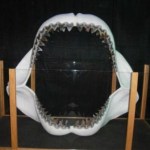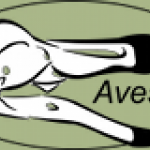Science Education
Earlier this week, I related a situation I found alarming in which a scientist and his children were targeted for harassment because he dared to express the view that research with animals plays an important role in answering scientific questions that matter to scientists and to the public. I was not alone in decrying these tactics. At least one animal rights group also condemned them.
Given that the post was pretty clearly directed at the question of tactics, I am frankly puzzled by this comment from Douglas Watts:
When I see mainstream "science" commit itself to a program which phases…
Chris Brodie is teaching the 'Explaining Science to the Public' class at NC State University. His students come from English, science and engineering departments and he is teaching them how to write well and how to utilize all of the modern technologies for science communication.
The students are now all on Twitter - yup, that's a class assignment - and you can follow their discussions if you search for the #esttp hashtag.
I visited their class last month and discussed various new forms of online science communication with them. Almost all of them also came to hear a wonderful presentation…
Listen to the podcast, post comments, ask questions - the new forum is now live and will go on for the next week:
How the Hidden Brain Controls Our Lives
We like to think of ourselves as conscious, rational beings.
But human behavior is largely driven by unconscious attitudes.
These attitudes reside in the deep recesses of the brain, and we ignore them at our own peril.
So says Washington Post journalist Shankar Vedantam.
Vedantam is the author of a new book, The Hidden Brain: How Our Unconscious Minds Elect Presidents, Control Markets, Wage Wars, and Save Our Lives.
Vedantam explores how the…
Student guest post by Anne Dressler
The idea of evolutionary medicine is new to me and my understanding is quite shallow but it has piqued my interest. Currently, the book "Why We Get Sick" by Randolph M. Nesse and George C. Williams has been satisfying my curiosity during the 15 minutes of intellectual thought I have left at the end of the day while reading before bed. From what I've read, I'm finding how useful it can be to consider disease in light of evolution and I'm left wondering how I haven't heard of it before. I'm guessing I'm not the only one interested, so let's talk evolutionary…
This post contains an oldie but (fairly) goodie YouTube clip about PowerPoint (.ppt). I hate PowerPoint although I use it a lot out of laziness. I've been lecturing a long time and for at least half of it there was no such things as .ppt. If you had data you wanted to show, you thought long and hard about which graphs or tables because each yellow letters on blue background kodachrome slide cost $8 to $15 so you only made up ones about things you couldn't talk about from your notes or write/draw on the blackboard. I used the blackboard a lot as a lecturer because I had a tendency to talk…
It's that time again. I teach a class in even years on infectious causes of chronic disease, looking at the role various infections play in cancer, autoimmune disease, mental illness, and other chronic conditions. When I last taught the course in 2008, the students were assigned two writing assignments--to be posted here on the blog. Since this turned out pretty well last time, I decided to repeat the assignment this year; so over the next week or so, I will be putting up guest posts authored by students on various topics under the broad umbrella of infection and chronic disease.…
A few days ago, I asked what it takes for a young person to start and, more importantly, continue for a longer term, to write a science blog. The comment thread on that post is quite enlightening, I have to say - check it out.
What is more important - that post started a chain-reaction on Twitter and blogs. Arikia Millikan, herself a young blogger, wrote a post in response which also attracted a lot of interesting comments. Go and comment.
Mason Posner wrote not one, but two posts in response: Science blogging in the classroom, an update and Young science bloggers need community. Go and…
For a very long time, I have argued that many scientists are excellent communicators.
I have seen a number of scientists talk over the years and the experience has been mostly very positive. Even if I limit myself only to what I saw over the last couple of months, every single scientist lecture was riveting.
So, where does the "scientists are bad communicators" trope come from?
I think it comes from the people looking at the results - a country whose government (and population) does anti-scientific stuff. They look at various factors that may lead to that state and decide that the audience…
... when it comes to Creationist Home Schooling.
Two dozen or so atheists, skeptics, scientists, and secularists visited the 2010 Home School Science Fair at Har Mar Mall, Roseville Minnesota. We witnessed (if I may borrow that term) twenty six home school project posters. The presentations varied considerably in their sophistication, overall quality, and complexity of the work represented, and most of this variation is easily understood as the outcome of the wide age range of the children who produced them. Some were impressive, some were cute, some were more scientific, some were less,…
Last night, braving horrible traffic on the way there, and snow on the way back, I made my way to the N.C. Museum of Natural Sciences for the Darwin Day shark lecture co-organized by NESCent and the sneak preview of the Megalodon exhibit which officially opens today.
I have to say that the trip was very much worth making - the exhibit is excellent! I like the way the exhibit is making good use of the space - so many exhibits feel cluttered and an all-out assault on all of one's senses. Upon entering the room, it looks quite sparse. Yet, once I started going around I saw how much it actually…
A new forum at World Science is up. As always, listen to the podcast first, then ask questions in the forum:
This week, India rejected what would have been the country's first a genetically modified food crop, a transgenic eggplant.
The company that developed it, an Indian subsidiary of Monsanto, claims the crop would reduce pesticide use and boost yields. But the Indian government has decided to do independent assessments of the crop's potential impacts on consumer health and the environment.
What does this mean for the future of GM crops in India and elsewhere? And does this technology have…
This afternoon, I'll be driving down to Raleigh to the N.C. Museum of Natural Sciences for the special Darwin Day event organized in collaboration with the National Evolutionary Synthesis Center.
The evening will start with the sneak-peak pre-opening of the Megalodon exhibit which opens to the public tomorrow. Megalodon was the largest shark ever discovered in the fossil record and the exhibit will, apart from its massive jaws, showcase the evolution of sharks, modern sharks and the conservation issues facing these magificient fish today:
At 60 feet long, Carcharodon megalodon was the…
Mason Posner is a professor of Biology at Ashland University in Ohio. He also blogs on A Fish Eye View (though I notice he did not update it in a while). About a year ago, and inspired by some discussions emanating from ScienceOnline'09, he decided to try using blogs in his teaching. He did it last spring. And he is doing it again this spring.
You can check out his Marine Biology Course class blog, where he and the students are all posting in one place.
But also check out his Senior Capstone course in Biology and its class blog - he is the only one blogging there - the students are required…
Aves 3D is a 'three dimensional database of avian skeletal morphology' and it is awesome!
This is an NSF-funded project led by Leon Claessens, Scott Edwards and Abby Drake. What they are doing is making surface scans of various bones of different bird species and placing the 3D scans on the website for everyone to see and use. With simple use of the mouse or arrow buttons, one can move, zoom and rotate each image any way one wants.
The collection is growing steadily and already contains some very interesting bones from a number of species, both extinct and extant. You can see examples of…
Har Mar is a funny little shopping mall in Roseville Minnesota. It is the home of the annual Twin Cities Creation Science Science Fair. Sometimes we visit the science fair, but it is not to laugh at the students....
... that would be rude and uncivil, and despite the fact that politeness and civility are EVILE, when it comes to children we should not be all in their faces.
Rather, we go to the funny little mall to enjoy each other's company, those of us who wish we got together more often than we do, to browse through the Creation Science Fair displays, and to size up the local…
At Pizza Lunch talks, we hear a lot about efforts to decipher the physical world. But what about psychological realms? How do you measure them, especially on a large scale among people scarred by trauma? At noon on Thursday, Feb. 18, come hear Dr. Jeffrey Sonis discuss "Cambodian Attitudes and Mental Health on the Eve of the Khmer Rouge Trials." The UNC-Chapel Hill physician and public health researcher is studying how Cambodians are responding to the genocide trials.
American Scientist Pizza Lunch is free and open to science journalists and science communicators of all stripes. Feel free to…
Here are some of the thoughts and questions that stayed with me from this session. (Here are my tweets from the session and the session's wiki page.)
This was sort of an odd session for me -- not so much because of the topics taken up by session leaders Tamara Krinsky and Jennifer Ouellette, but because of my own sense of ambivalence about a lot of "entertainment" these days.
The session itself had lots of interesting glimpses of the work scientists are doing to help support filmmakers (and television producers, and game designers, and producers of other kinds of entertainment) who want to…
A federal appellate court has ruled against a Christian school in Murrieta which had sued the University of California over its refusal to accept high school courses that rely on the Bible as the unerring source of truth.
Details here.
Next step: Homeschoolers!
(Hat tip: August Berkshire)
Several items showed up recently that may be of interest to science bloggers, their readers, and related science communicators of various stripes....
A) Today, Eureka, the science section of London Times, published a list of Top 30 Science Blogs.
Every list that has me in it is a good list ;-)
They say "Zivkovic, who studies circadian rhythms, is an often-provocative evangelist for new media who has probably done more than anyone else to inspire scientists to blog. He is also a must-follow on Twitter, where he posts as @boraz"
They could have had a more diverse group (in sense of gender,…

